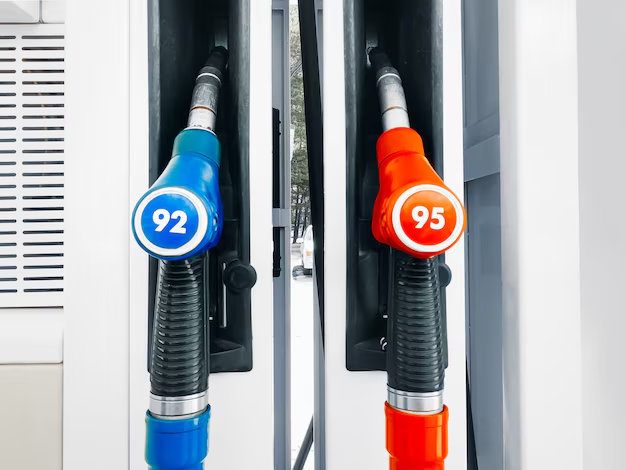Understanding Excise Tax: What You Need to Know
Imagine you're filling up your car at the gas station, sipping on a sugary soda, or enjoying a refreshing adult beverage. As you go about your day, you may not realize a special tax is being levied on these goods—a tax known as excise tax. But what exactly is excise tax, and why should you care? Let's break it down into easily digestible pieces.
What is Excise Tax?
Excise tax is often referred to as a "sin tax," a government levy on specific goods and services considered harmful or non-essential. These goods usually include tobacco, alcohol, gasoline, and sugary drinks. Unlike sales tax, which is applied to a broad range of products, excise tax targets specific items and is typically included in the price of the goods.
The Purpose of Excise Tax
Excise taxes serve several important functions:
- Revenue Generation: Governments utilize excise taxes to generate revenue for public projects.
- Behavioral Influence: By imposing additional costs on unhealthy or environmentally damaging products, excise taxes aim to deter their consumption.
- Internalizing External Costs: These taxes incorporate the broader societal costs of certain goods, such as pollution or healthcare costs related to smoking.
Types of Excise Tax
Excise taxes can be divided into several categories, each with distinct attributes and goals.
Specific Excise Tax
Specific excise taxes are calculated based on a fixed amount per unit of product, such as a per-gallon tax on gasoline or a per-pack tax on cigarettes. This type provides revenue stability since it doesn't vary with changes in the product's price.
Ad Valorem Excise Tax
Ad valorem taxes are based on the value of the product, rather than on the quantity. For example, if an excise tax is a percentage of the retail price of a luxury car, it's an ad valorem tax. This type can result in fluctuating revenues as prices change.
Different Goods, Different Taxes
Tobacco Excise Tax
Aimed at reducing smoking and its health impacts, tobacco excise taxes are applied per pack of cigarettes or other tobacco products. They're a major revenue source for many governments.
Alcohol Excise Tax
This tax targets alcoholic beverages, with rates varying by type (beer, wine, spirits) and alcohol content. It's both revenue-generating and a public health strategy.
Fuel Excise Tax
Fuel taxes apply to petroleum products and are pivotal for road infrastructure funding. They also encourage energy conservation by increasing the cost of fuel.
Other Goods
Excise taxes can apply to multiple products, from luxury vehicles to carbon emissions. Items may be taxed to promote social welfare or environmental responsibility.
How Does Excise Tax Affect Consumers?
Whether you're aware or not, excise taxes impact your wallet. These taxes are typically included in the sale price, so you might not notice them explicitly. Here’s how they can affect you:
Increased Prices
Goods with excise taxes are more expensive. For example, a pack of cigarettes may carry a hefty tax, raising its overall cost significantly. If you regularly buy such items, you'll notice the pinch.
Behavioral Change
When certain items become pricier due to excise taxes, people might choose healthier or more environmentally friendly alternatives. This shift can reduce consumption of taxed goods over time.
Excise Tax on Businesses
For businesses, excise taxes can present both challenges and opportunities.
Compliance Requirements
Businesses need to correctly assess and pay these taxes to avoid penalties. This involvement can mean additional administrative burdens and costs.
Promotional Strategies
Some companies might absorb part of the tax to keep prices competitive, affecting profit margins. Others could highlight their products as healthier or eco-friendly by contrasting them with taxed alternatives.
Excise Tax Around the World
United States
In the U.S., excise taxes are levied at both federal and state levels. These taxes finance transportation projects, health programs, and more. State-specific rates vary widely, affecting product prices across regions.
Europe
European countries are known for substantial excise taxes, especially on alcohol and tobacco, aiming to curtail consumption and fund healthcare. The specifics vary significantly across the continent.
Developing Nations
In emerging economies, excise taxes can be critical in generating revenue for infrastructure and public services while promoting public health.
Navigating Excise Tax: Practical Tips
💡 Key Takeaways
- Know Your Expenses: Keep an eye on products frequently burdened with excise taxes to better manage your budget.
- Seek Alternatives: Consider healthier choices or energy-efficient options that may not carry high excise taxes.
- Understand the Impact: Recognize how these taxes contribute to societal benefits and consider their broader implications on policy and personal spending.
For Business Owners
- Stay Informed: Stay updated on excise tax rates and regulations affecting your industry to maintain compliance.
- Consider Pricing Strategies: Evaluate whether to absorb taxes partially and reduce potential price shock for consumers.
The Broader Implications of Excise Tax
While initially intrusive, excise taxes can lead to positive changes. They urge consumers towards healthier lifestyles, greener options, and contribute to funding essential public projects. Governments must balance revenue generation with the social impact carefully to maintain equity and fairness in taxation.
Excise taxes are more than just another cost; they're tools for public policy and societal betterment. Whether you're shaking your head at the gas pump or priding yourself on choosing healthier snacks, remember the role these taxes play in shaping not just personal choices, but a nation's health and economy.
As consumers and businesses align with these economic nudges, the broader objectives of excise taxes—healthier lives, a greener planet, and well-funded infrastructures—come closer to realization.
Understanding excise taxes empowers you to make informed choices in daily purchases and business strategies, ensuring you're part of a broader movement towards fiscal and social sustainability.

